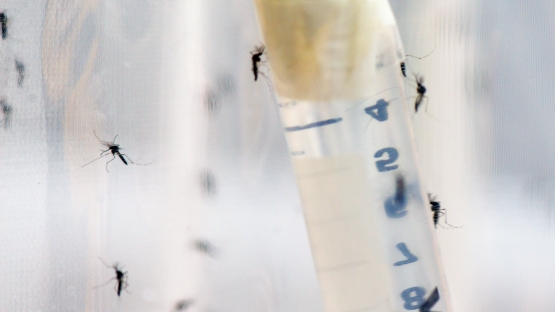
Under threat from its worst recorded outbreak of dengue since 2000, Bangladesh has turned to the International Atomic Energy Agency (IAEA) and World Health Organization (WHO) to help outline a plan to test a nuclear technique to combat mosquitoes spreading the disease.
More than 38,000 have been infected with dengue in Bangladesh since January 2019. Recent weeks have revealed a deteriorating situation, with daily admission of more than 1,500 new patients to hospitals. Mosquito-borne dengue can cause flu-like symptoms, while some strains can lead to lethal complications. The outbreak in Bangladesh has caused over 40 deaths since the beginning of the year.
Experts joined Bangladesh officials to create a four-year plan that involves the release of sterile male mosquitoes in 2021 and 2022, to be supplemented by technical assistance from the IAEA for training, data collection, and facility upgrades. A mosquito insectary is already in place in the country, established in 2008. Experts will use such facilities to produce thousands of mosquito larvae per week under the Sterile Insect Technique (SIT), which uses radiation to sterilize male insects. They then mate with females in the wild, but cannot produce offspring, resulting in population reductions.
“The SIT has been successfully implemented against numerous insect pests of agricultural importance and is now being adapted for use against mosquitoes,” said Rafael Argiles Herrero, an entomologist at the Joint FAO/IAEA Division of Nuclear Techniques in Food and Agriculture. “The method is very specific to the target species and has no impact on other living organisms or the environment.”
The joint mission in Bangladesh is part of a collaboration between the IAEA and WHO to intensify research and development on the use of SIT in fighting disease. Unfortunately, while the SIT has been successfully used before against agricultural pests, WHO expert Rajpal Yadav noted that organizations still need more data to show it leads to reduced disease incidence before it can be used on a large scale.




